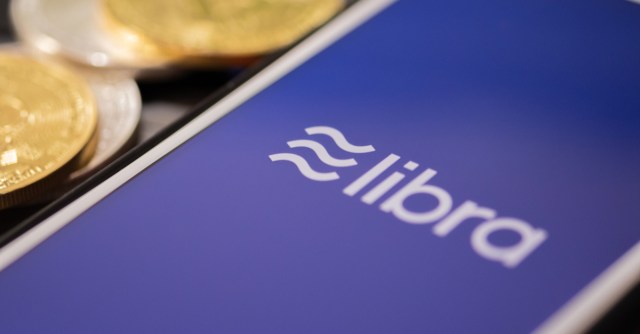Many have highlighted the cybersecurity implications of Facebook’s forthcoming Libra cryptocurrency, but Congressional lawmakers in the US have an even greater fear: could the grand initiative undermine the security of the global financial ecosystem itself?
That’s what’s keeping members of the US House of Representatives Committee on Financial Services up at night. On Tuesday, Chairperson Maxine Waters sent a letter to Facebook and Calibra, the subsidiary developing the Libra digital wallet, fretting about the global dangers of the cryptocurrency and asking them to stop developing it for the time being.
The letter worries that Libra could compete with the dollar and US monetary policy. It warned:
This raises serious privacy, trading, national security, and monetary policy concerns for not only Facebook’s over 2 billion users, but also for investors, consumers, and the broader global economy.
The 29-page white paper that Facebook published on Libra doesn’t provide nearly enough information, warned the Committee. It called for time to consider the initiative’s implications:
If products and services like these are left improperly regulated and without sufficient oversight, they could pose systemic risks that endanger U.S. and global financial stability.
Senators are also worrying about Libra. The Senate Committee on Banking, Housing, and Urban Affairs had already written to Facebook, on 9 May, before the social media giant officially announced the project, asking it for more information. In the UK, the Financial Conduct Authority is also concerned about the cryptocurrency’s potential effects.
So what do we know about Libra? Facebook’s white paper says that the cryptocurrency, created by the Switzerland-based Libra Association, will run on an open source blockchain software developed by Facebook. Financial institutions including Mastercard, Paypal, and Visa will support it and doubtless profit from the venture, although Facebook is taking a leadership role for now.
The cryptocurrency will start on a ‘permissioned’ blockchain using a known list of organizations that can validate transactions, but Facebook seems set on relinquishing control within five years, creating a ‘permissionless’ blockchain on which anyone can play. Bitcoin’s blockchain is also permissionless. Another similarity with bitcoin is Libra’s pseudo-anonymity. Even in its initial incarnation, it will let people use addresses not linked to their real-world identities.
Unlike bitcoin, though, Libra will rely on a reserve of bank deposits and short-term government securities for its value. This should make it more liquid and less volatile than bitcoin.
Are the authors right to worry? Dr Jay Zagorsky, senior lecturer at Boston University and a Libra sceptic, thinks so. He pointed out to us that US consumers traditionally enjoy deposit insurance. In the US, the Federal Deposit Insurance Corporation does that. In the UK, it’s the Financial Services Compensation Scheme. He told Naked Security:
Libra offers no explicit insurance but investors might expect the US Gov. to implicitly back up the system. If investors implicitly expect the US gov. to step in when a problem occurs then Facebook should allow Congress to think about the issue.
The Committee’s letter worries that the government might have no choice but to bail out Facebook if Libra went off the rails, because it would be too big to fail.
Another question is whether Libra could become too big to stop. Is Congress powerful enough to nobble Libra if it thinks Facebook is moving too quickly? The governing body is a foundation in Switzerland. Incidentally, that’s the approach that the open source Ethereum blockchain project took when setting up its Ether cryptocurrency to avoid any blowback from the SEC.
Zagorsky has this to say:
Congress in my opinion has great power, especially in controlling money and the banking system. Congress can bar any bank from dealing with Libra. This would prevent US consumers from putting money into or out of the new currency system. Libra could continue growing in the rest of the world but if Congress and the EU together decide Libra is too great a risk, the project is dead.
It’s worth remembering, though, that Facebook is touting Libra as a mechanism to bring financial services to the ‘unbanked’, not served by traditional financial services institutions. Many of those are in emerging markets outside the US and Europe, which are still growth opportunities for a social media market that is stagnating in more developed economies.
There isn’t long left for Congressional leaders to thrash this out. Facebook wants to launch the cryptocurrency in the first half of next year and wouldn’t agree to put the brakes on it (did anyone really expect that it would?). It told us:
We look forward to working with lawmakers as this process moves forward, including answering their questions at the upcoming House Financial Services and Senate Banking Committee hearings.
The House Committee hearing is coming up on 19 July. In the meantime, we can only recall the slogan that Facebook quietly swept under the carpet in 2014: “Move fast and break things”. It replaced that phrase with “Move fast with stable infra”. But what happens if the stable infrastructure is the economic system itself, and Facebook is piggybacking on it?

